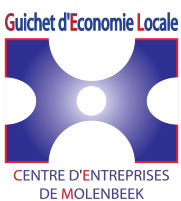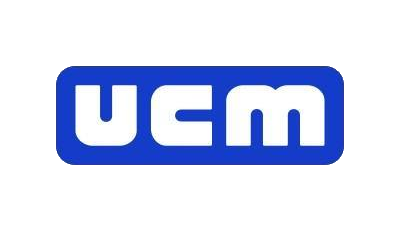Are you considering opening a bakery/cake shop but don’t know where to start? What are the formalities, obligations, points for consideration, aids? Follow the guide!
You must be able to prove that you are qualified to work in the bakery/pastry profession (FR) to work as a self-employed baker/pastry chef in the Brussels Region. In addition, to qualifications, which are a legal prerequisite, the profession requires real know-how. It is essential to receive training and gain practical experience before starting your own business.
Access to the profession
By “baker/pastry chef”, we mean a person who makes the following products on a consistent and self-employed basis, and on behalf of third parties: breads, pastries (products using puff or flaky pastry, meringues, various pâtes grasses, biscuits and fruit cakes, petits fours, pies and tarts and cakes).
However, restaurant operators and caterers who prepare desserts for their business don’t need to be certified as a baker/pastry chef as well.
In addition, chocolates, sweets, jams, ice creams, crepes and the cooking of pre-made products are not covered by the baker/pastry chef regulations.
The eating areas of bakeries/pastry shops are not subject to professional qualifications either and if you buy and resell in a tea room you don’t need to be certified.
There are different ways to obtain professional qualifications: working in the profession for at least five out of the past 10 years, taking the jury central examination (FR), or taking certification training.
If you are unsure, check with a business counter (FR) which will be able to confirm if you are entitled to work in the profession.
You will find complete information about the rules for accessing the baker/pastry chef profession (FR) on the Brussels Economy and Employment website.
Training
Several centres provide training and qualifications for the baker/pastry chef profession:
- Ceria (adult education in fundamentals and continuing education);
- EFP (adult education in fundamentals and continuing education);
- Compagnons du devoir (workers’ training association).
Where should you locate your business ?
AT HOME
You can do your first trials at home, as long as your products are not on sale. On the other hand, as soon as products are sold, they must be produced in a location that complies with AFSCA standards. Be sure to check the planning regulations for the location where you plan to produce. See the article on this subject.
IN A SHARED KITCHEN
Another option is to rent a shared kitchen which complies with AFSCA standards. Rental is usually by the hour.
Another alternative is to rent a restaurant kitchen when the establishment is closed.
IN A FOODTRUCK
You can also opt for a mobile business. If you prepare the products yourself, you will need to qualify as a baker. If, on the other hand, you sell pre-prepared products, you don't need to be a baker. So, you can get started a little more quickly if you have the skills needed for the job but don't have proof of access to the profession itself.
You will find lots of advice on starting a foodtruck business in this article.
IN COMMERCIAL PREMISES
Before anything else, and certainly before signing a commercial lease or making any investments, you need to check with the local authority what the premises are intended for and how they will be used. If this does not correspond to the activity you wish to carry out, you will need to apply for an urban planning permission. Such an application is also necessary, for example, for the installation of a professional chimney or, in certain cases, for consumption on the premises or the installation of a sign.
And since you are not automatically entitled to a permit, you need to be careful.
For a production workshop (≥ 2 kW motive power) or the installation of machinery of a certain size (cold room, electric oven, etc.), you will also need to apply for an environmental permit and then comply with the conditions set out in the permit. Brussels Environment has published a guide for operators of food preparation workshops. In it you will find good practices and the legal obligations relating to your sector.
You can find retail space to lease at inventimmo, a database entirely dedicated to commercial real estate in Brussels. Note that this website, like the private immoweb and immovlan platforms, does not check for the existence of an urban planning permit for the properties advertised. The only place to avoid unpleasant surprises is the municipality's urban planning office.
The hub.brussels Retail Unit can help you with your business location strategy (where to set up for optimum success) and with getting your business up and running. Contact them once you have started your business plan, with the help of a Local Economy Office for example.
Food safety and hygiene
All food chain operators must request registration, approval, or authorization from the Federal Agency for the Safety of the Food Chain (AFSCA) based on the specific business activities they conduct.
AFSCA provides users with a self-checking guide (PDF) for the bakery sector. AFSCA also uses a system of checklists (PDF) to conduct its inspections.
Brufotec (FR) is a non-profit organization that provides advisory, training, and support services focused on implementing and monitoring food safety and hygiene standards.
PACKAGING
If you sell pre-packaged foods, you will need to pay close attention to the regulations governing the labelling of these products. The following must appear in the two official languages of the Brussels-Capital Region: the name of the foodstuff, the list of ingredients, the declaration of allergens, the quantitative indication of ingredients, the net quantity, the minimum durability and use-by dates, the special conditions of conservation and use, the name and address of the operator responsible, the country of origin or place of provenance, ..... The full regulations can be found on the website of the FPS for Public Health, Food Safety and the Environment.
Music
If you want to play music in your bakery-pastry shop, you need to pay a royalty to Unisono (formerly Sabam) and for equitable remuneration. This fee depends on the size of the space in which the music is played. You can submit a single declaration for both.
Insurance
If you carry on your business in premises accessible to the public, you must take out objective third-party liability insurance (fire and explosion). If you have a vehicle, you will need to take out third-party liability insurance for your car. Professional third-party liability insurance, which covers damage caused to a third party by the company, is not compulsory but is strongly recommended. You may also find other types of insurance useful: consult the relevant section of this site and contact your insurance broker!
Legal status
You know what you're going to do and how you're going to do it, but you've still got to decide which legal status you're going to use to start up and develop your business!
FULL-TIME SELF-EMPLOYED OR COMPANY ?
You can be self-employed as a natural person, or create a company.
If you want to start to test your business (FR) without taking too many risks, there are also alternatives to being self-employed:
Business cooperatives
These entities offer entrepreneurs the ability to:
- Operate using the cooperative's VAT number
- Access comprehensive administrative, legal, and support services
- Obtain insurance coverage
- Potentially continue receiving unemployment insurance while transitioning to self-employment
- Facilitate gradual business startup and development
As they are intended to test your business with minimum risk, organisations like Smart (FR) or JobYourself are available to projects that need little financial investment and are, better suited to businesses like catering or a foodtruck.
Part-time self-employed
You can be part-time self-employed from a salaried position or from unemployment by extending an existing self-employment activity on a part-time basis (FR) or via the self-employed springboard which enables you to maintain income while the new business is getting off the ground and begins to provide income. Conditions (FR) governing income, the duration and working hours may be applicable, depending on the case.
Subsidies
Several forms of financial assistance can help you get your business off the ground!
- If you are unemployed and setting up as a self-employed person as your main occupation, you may be eligible, subject to certain conditions, for the €4,000 "self-employment allowance".
- Several grants are available to help you develop your business project or take over a business.
- If you plan to invest in equipment, property, works, buy out a business, register a trademark, etc., you can apply for an investment allowance. Depending on the expenditure and various conditions, you can receive a reimbursement of between 2.5 and 30% of the investment amount.
- Once your business is up and running, if you want to improve your skills or those of your employees to make your business more efficient or more competitive, the training allowance can cover 40 to 80% of your training costs.
- If you want to make your business more visible on the internet, digitise its internal processes or improve IT security, the digitisation allowance can cover 25 to 70% of your costs.
- If you want to take on new staff, there are several recruitment schemes available.
Getting yourself known
DEDICATED WEBSITE
Tartine et Boterham the leading artisanal bakeries/cake shops in the Brussels-Capital Region also organise workshop visits, training and tastings to promote the work of artisan bakers/pastry chefs.
Groups and federations
- FGBB (Federation of Big Bakeries of Belgium)
- FEDIMA (Federation of European Manufacturers and Suppliers of Ingredients to the Bakery, Confectionery and Patisseries Industries)
- FEVIA (Federation of the Food and Drink Industry in Belgium)
- UNIFA (Union of Belgian Suppliers for Baking, Cakes, Chocolate and Ice Cream Producers)
- Organic-certified producers of Wallonia
- Organic-certified producers of Flanders
Would you like more information on this subject? Please don’t hesitate to contact us with your questions.
Who can help me ?





